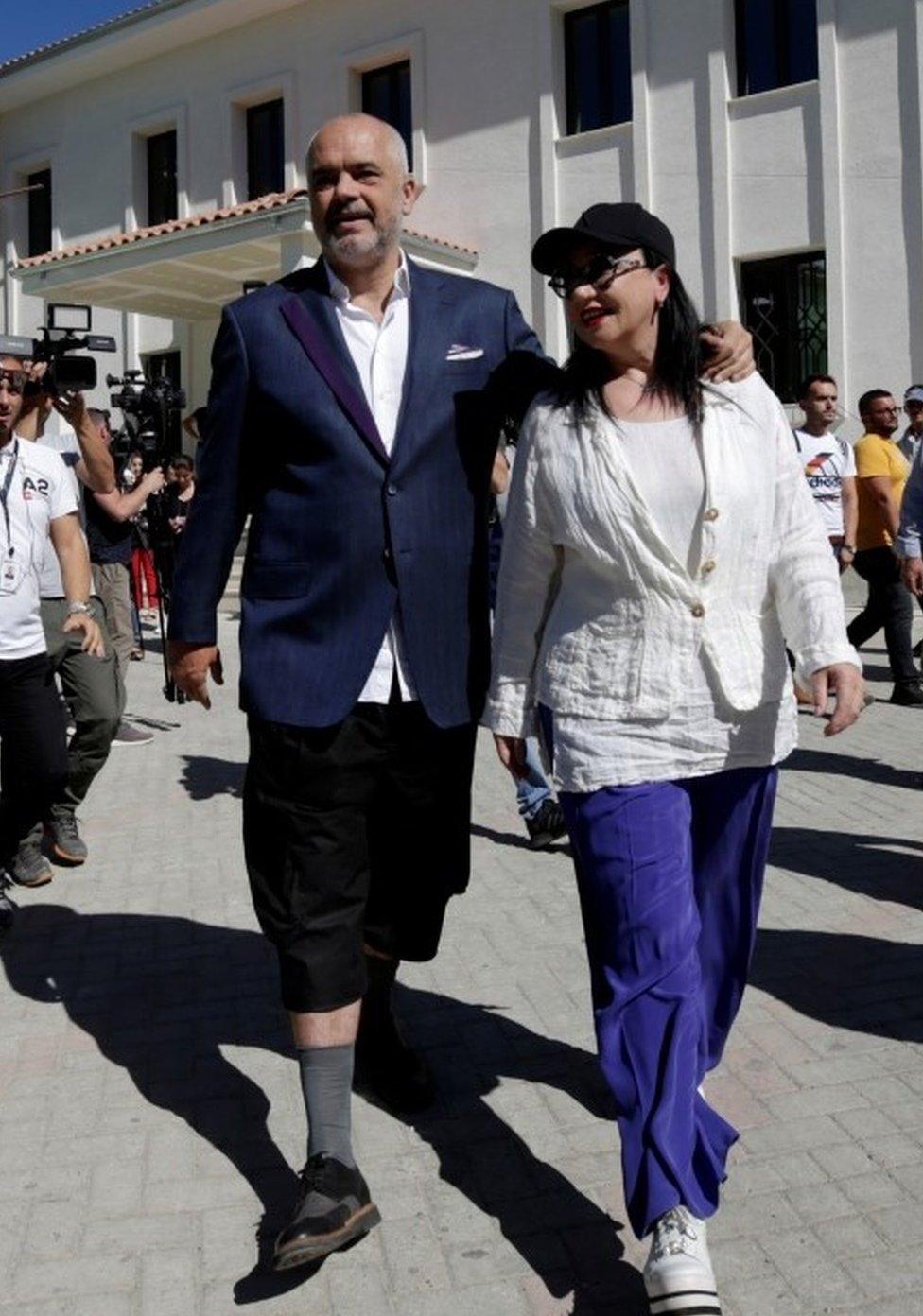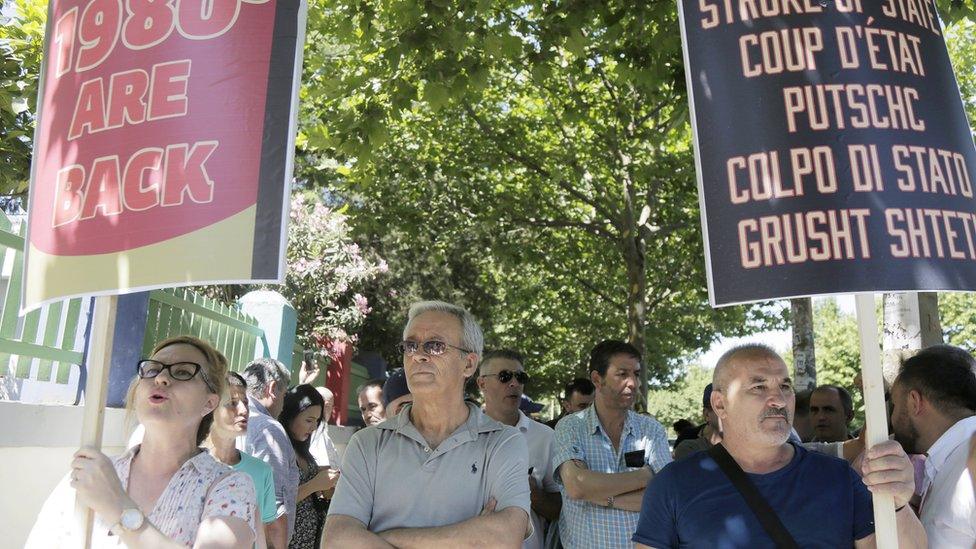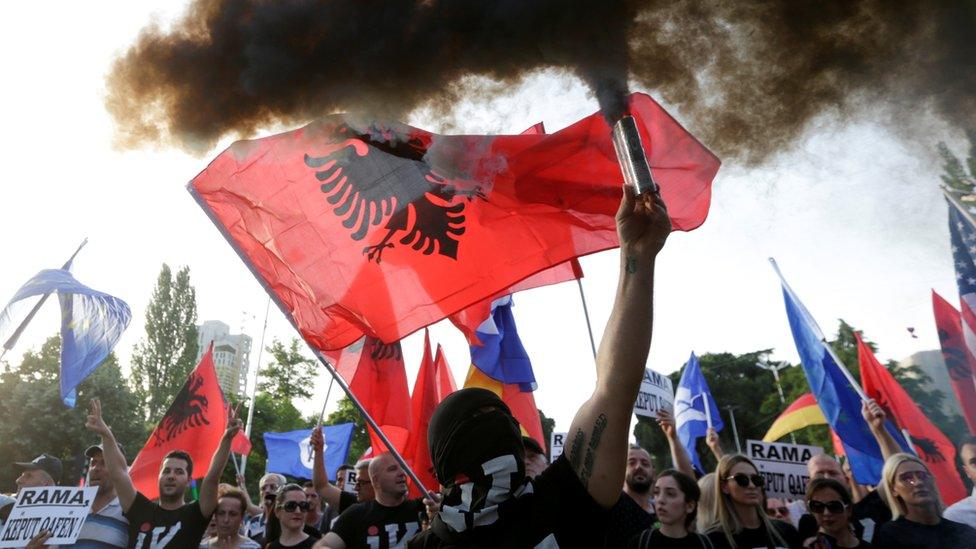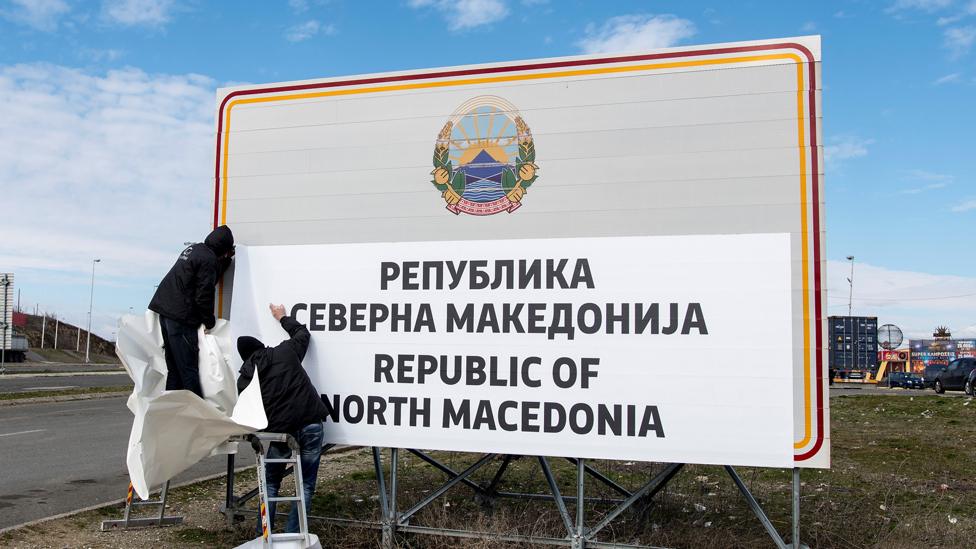Albania votes amid opposition boycott
- Published
Some Albanians vote - others protest to support an opposition boycott
Albanians have voted in an election like no other since the nation emerged from 50 years of communism.
Prime Minister Edi Rama pressed on with the local polls - even though his Socialist candidates face almost no opposition at the ballot box.
The main opposition boycotted the poll, and minor incidents occurred at polling stations.
President Ilir Meta issued a decree to postpone the poll, but Mr Rama rejected it.
He has started moves to impeach the president, once an ally.
For months now, the opposition has held protests demanding the resignation of the prime minister and new general elections.
They accuse Mr Rama of previous electoral fraud and corruption - which he denies.
What happened on Sunday?
The vote went ahead, with critics saying it is not a proper election given the lack of competition. Only representatives of minor parties are opposing Mr Rama's Socialists in a few seats - many are uncontested.
Some local opposition mayors used their powers to stop the use of public buildings - such as schools - as polling stations.

Prime Minister Edi Rama accuses the opposition of seeking to wreck Albania's European future
In the run-up to the vote, opposition supporters clashed with police - and in some cases set fire to ballot papers and boxes.
Incidents on Sunday included scuffles and broken windows. In one case, an armed man burst into a polling station and was subsequently arrested.
But opposition protests were largely peaceful - in some cases songs from Albania's communist past were sung outside polling stations to taunt those voting in what opponents say are single-party elections.
Lulzim Basha, leader of the largest opposition Democratic Party, has been under international pressure to rein in militants. On the eve of the vote, he urged supporters to refrain from violence.
What's causing this confrontation?
Mr Rama - in power since 2013 - won the last parliamentary elections in 2017.
Early this year, the opposition alleged that the vote had been "bought".

The opposition have been alleging the election is a reminder of communist times in Albania
German newspaper Bild has published intercepted telephone conversations that the opposition says prove their charges. Mr Rama has sued in a German court.
Every poll result since the 1991 election - which took place a year after the fall of communism - has been disputed.
Petrol bombs hurled at Albanian prime minister's office earlier this year
This time, however, the Albanian opposition took the unprecedented step of relinquishing their parliamentary mandates en bloc.
Their tactic appears to have backfired. They had hoped to derail the work of parliament and force the government to back down.
Is there any hope of reconciliation?
Unlikely. Traditionally, election winners in Albania have adopted a "winner-takes-all approach" and the opposition has often seen street protests deliver what parliamentary discourse failed to.

The EU has criticised some of the violent tactics use by protesters over the past few months
The Organization for Security and Co-operation in Europe has deployed election observers. Their initial report underlines the challenges they face, external.
European Union leaders are assessing whether to start of membership negotiations for the Balkan nation, also a Nato ally.
A decision expected in October may hinge on the outcome of Sunday's exercise.
- Published30 May 2019
